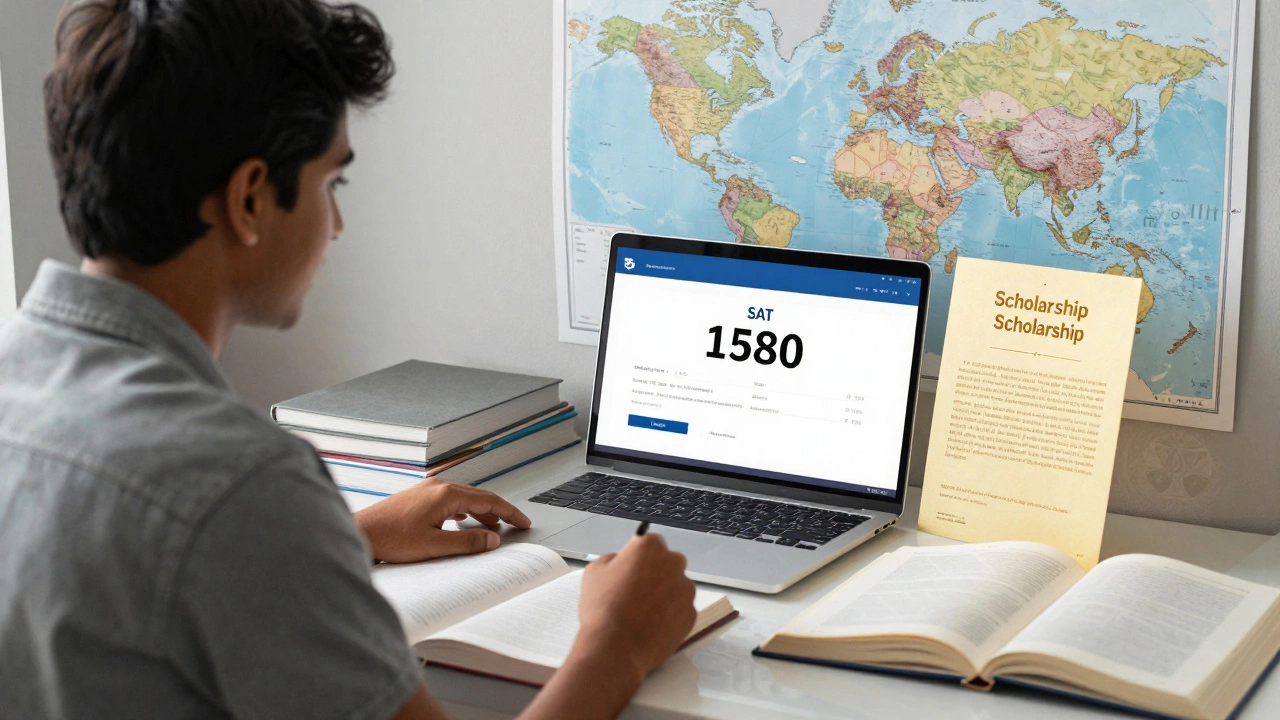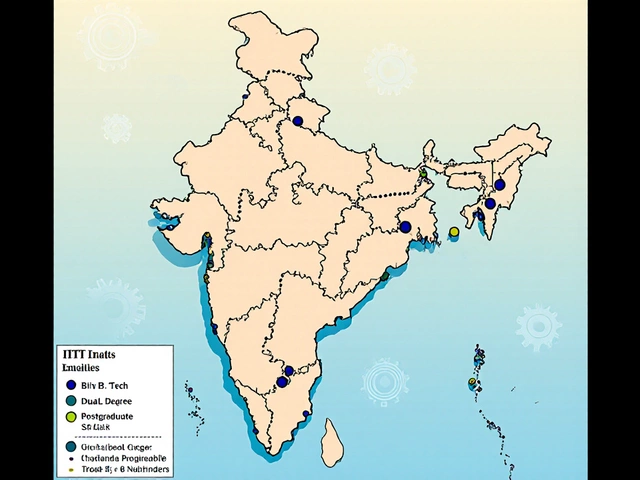Scholarship exams serve as a gateway for many students seeking financial support for their academic pursuits. These exams assess a range of abilities, granting successful candidates the means to further their education without the burden of excessive costs. With numerous scholarship exams available globally, students have the opportunity to compete for funding across disciplines and regions.
Understanding the landscape of these exams and the opportunities they offer is crucial for any aspiring scholar. From the rigorous tests offered by respected institutions to specialized exams tailored to specific fields, there's a wealth of information to explore. This guide delves into the intricacies of scholarship exams, providing insights into what they entail, the benefits they offer, and how they shape the educational journeys of countless students worldwide.
- Understanding Scholarship Exams
- Notable Global Scholarship Exams
- Eligibility and Application Process
- Preparation Tips for Success
- Impact of Scholarships on Education
- Future of Scholarship Exams
Understanding Scholarship Exams
Scholarship exams stand as pivotal opportunities for students worldwide, offering a chance to receive financial aid that can make all the difference in pursuing higher education. These exams are designed to identify and reward talented individuals, serving as both a measure of academic prowess and a doorway to educational funding. Often sponsored by governments, universities, or private organizations, these tests aim to foster a culture of excellence while alleviating financial burdens.
The scope of scholarship exams is diverse, covering a variety of fields and accommodating different levels of study—from undergraduate to postgraduate research. A notable example includes the Rhodes Scholarship, awarded to exceptional students globally to study at the University of Oxford. This competitive exam emphasizes academic excellence, leadership, and commitment to service. Meanwhile, the Fulbright Program, an initiative by the U.S. Department of State, provides funding for international exchange, promoting mutual understanding between countries through education and culture.
Eligibility for these exams typically requires a stellar academic record, though criteria can vary significantly depending on the scholarship’s purpose. Some may prioritize particular fields of study, such as STEM (Science, Technology, Engineering, and Mathematics) fields that are vital to modern innovation and development. The application process usually involves submitting academic transcripts, recommendation letters, and personal statements that illustrate the applicant’s aspirations and qualifications.
"Scholarship exams are not just about recognizing intelligence; they reward potential and determination," states Dr. Emily Carter, professor and advocate for educational funding.
Preparation is key in standing out among the numerous applicants vying for limited slots. This involves not only academic readiness but also a comprehensive understanding of the specific exam’s format and expectations. Some exams might include written tests, interviews, or practical assessments, each designed to test various competencies. Engaging in mock tests, study groups, and seeking mentorship from past recipients can significantly boost one's chances of success.
Scholarship exams play a crucial role in reducing educational inequality by offering opportunities to deserving candidates from varying backgrounds. They encourage a merit-based approach to education, often leading to groundbreaking research and innovations driven by scholars who might have otherwise lacked the means to pursue their dreams. As these exams evolve, they continue to reflect the changing dynamics of education and international collaboration, ensuring that talent and ambition are justly rewarded, irrespective of one's economic standing.
Notable Global Scholarship Exams
When it comes to prestigious scholarship opportunities, certain exams have carved a niche for their remarkable ability to connect bright minds with the financial support they need to pursue higher education. These scholarship exams provide students a chance to showcase their talents and compete for coveted awards that open doors to renowned universities and colleges. Among these, the Fulbright Program, Rhodes Scholarship, and the Gates Cambridge Scholarship are often celebrated for their global reach and rigorous selection processes. Each of these programs is distinct in its offering, with specific criteria to wow over. Aspiring applicants must possess excellent academic records, demonstrate leadership skills, and exhibit a keen interest in contributing positively to society.
The Fulbright Program stands out for its dedication to fostering mutual understanding between countries through educational and cultural exchanges. Open to graduate students, young professionals, and artists, it encourages participants to engage in cross-cultural experiences that enrich their academic pursuits. Similarly, the Rhodes Scholarship offers a route to the University of Oxford, making it one of the most prestigious international programs. With an emphasis on academic excellence, integrity, and leadership, it selects scholars who aspire to bring about meaningful societal change.
Another esteemed program is the Gates Cambridge Scholarship, which focuses on postgraduate study at the University of Cambridge. Funded by the Bill and Melinda Gates Foundation, it highlights leadership potential, commitment to improving the lives of others, and academic brilliance. Candidates from all corners of the globe vie for this chance to become part of a diverse and intellectually vibrant community. A testament to its impact, the scholarship has funded over 2,000 students from more than 100 countries since its inception in 2000.
In Asia, the Japanese Government MEXT Scholarship offers international students an opportunity to study in Japan across various disciplines, promoting global understanding and educational exchange. Likewise, the Commonwealth Scholarship provides full funding for students from low and middle-income Commonwealth countries to study in the UK, focusing on sustainable development. These are just a few examples that reflect how scholarship exams extend beyond financial support. They forge paths for personal growth, intercultural appreciation, and pioneering research. As Sir John Beaton, a former Rhodes Scholar, once asserted, "A scholarship does not merely finance your education; it challenges your intellect and broadens your perspective."
A scholarship does not merely finance your education; it challenges your intellect and broadens your perspective. – Sir John Beaton, former Rhodes Scholar
With such a wide array of scholarship exams available, prospective students must thoroughly research to identify programs that align with their educational goals and professional aspirations. By preparing diligently and understanding the unique offerings of each scholarship, applicants can enhance their chances of success in these globally competitive exams. Websites like Study International and Scholars4Dev provide invaluable resources to students navigating this complex landscape of opportunities. For those ready to take the leap, these exams represent an investment not only in education but in a future full of promise and possibility.

Eligibility and Application Process
In the landscape of scholarship exams, understanding eligibility criteria is a crucial first step toward seizing these invaluable opportunities. Typically, these exams are designed with specific requirements, tailored to match the objectives of the scholarship providers. For instance, some exams are crafted for high school students seeking undergraduate admissions, while others may target current undergraduates or graduate students aspiring to advanced degrees. Age restrictions are common, often aligning with standard educational milestones. Besides age, academic performance plays a significant role, with most scholarships requiring a certain GPA or its international equivalent, underscoring the importance of maintaining consistent academic excellence.
Academic background isn't the only factor, though. Many scholarships are designed to promote diversity and assist underrepresented communities, hence they may incorporate criteria such as geographic location, socio-economic background, or ethnic heritage. Others may focus on specific fields of study, rewarding those excelling in disciplines like science, technology, engineering, and mathematics (STEM), thus fiercely supporting students who show promise in these areas. Language proficiency is another common requirement, especially for students opting to study in a non-native language. For example, English language proficiency tests like TOEFL or IELTS are often prerequisites for programs in English-speaking countries.
Once eligibility is confirmed, navigating the application process is the subsequent hurdle. This can be a multi-faceted endeavor involving several stages, demanding attention to detail and meticulous preparation. The journey often begins with gathering the requisite documents, such as transcripts, letters of recommendation, and sometimes a personal statement or essay that articulates the applicant’s ambitions and achievements. Crafting a strong personal statement is vital, as it offers applicants the chance to assert their personality, ambitions, and suitability for the scholarship.
Further steps might include sitting for the scholarship exams themselves. These can vary significantly in format and content, from standardized tests similar to the SAT or ACT, focusing on core subjects like mathematics and verbal skills, to more specialized exams relevant to the applicant's field of study. Preparing for these exams is imperative, with many students opting for preparatory courses or seeking guidance from mentors who have successfully navigated similar paths. A tip often cited is to tackle past papers and sample questions to get a feel for the exam's style and difficulty.
Application Deadlines and Decision Timelines
Adherence to deadlines is non-negotiable in the scholarship application process. These timelines not only dictate when applications must be submitted but also influence when candidates will receive notifications about their application's status. Missing a deadline can mean forfeiting an entire academic year of potential funding. It’s also significant to keep track of when interviews, if any, may be scheduled, as this can be a part of the selection process in some schemes.
Recent statistics show a rising number of applicants per available scholarship, emphasizing the competitive nature of these opportunities. An interesting trend is the expanding scope of online and international scholarships, increasingly aimed at fostering global education exchanges. This is evident in programs like the Fulbright Scholarships and Rhodes Scholarships, which notoriously receive applications from talented students across diverse continents. As such, applicants must ensure every component of their submission stands out. "Achieving a scholarship is less about luck and more about meticulous preparation and presenting a genuine narrative of one's journey," notes a former Rhodes Scholar.
Preparation Tips for Success
Preparing for scholarship exams requires a strategic approach that encompasses more than just rote learning. Success in these exams often hinges on understanding the format and the types of questions that are likely to appear. First and foremost, familiarize yourself with the exam syllabus and format. This foundational knowledge helps in crafting a study plan that covers all necessary areas. Allocate specific times for each topic, ensuring a comprehensive coverage of subjects. Practice tests, particularly under timed conditions, simulate the actual exam environment, aiding students in better managing their time while minimizing anxiety on the day of the exam.
It is crucial to incorporate varied study techniques to enhance memory retention and comprehension. Techniques like summarization, self-questioning, and even teaching the material to someone else can deepen one’s understanding. Formulating a schedule that alternates between study sessions and breaks allows the mind to absorb information more effectively. Resources such as past scholarship exams papers, available study materials, and online platforms provide a wide range of tools to aid in preparation. Moreover, joining study groups can offer new insights and perspectives, which often illuminate areas one might overlook when studying alone.
Staying Motivated and Healthy
Maintaining motivation throughout the preparation phase is another critical element. Setting short-term and long-term goals can offer a sense of achievement and progress. Additionally, acknowledging and rewarding oneself after reaching specific landmarks in your study schedule can keep one motivated. It's vital not to overlook the importance of physical health; eating nutritious meals, exercising regularly, and ensuring adequate sleep contribute significantly to cognitive functioning. A balanced lifestyle enhances focus and energy levels, crucial during intensive study periods.
"Success is the sum of small efforts, repeated day in and day out." - Robert Collier
In the realm of scholarship opportunities, understanding the content is merely one part of the equation. Regularly revisiting and revising topics reinforces learning and builds confidence. Tackling subjects one finds difficult with more frequency can soften their initial challenge over time. Don't hesitate to seek help when necessary; educators, mentors, or tutors can provide support and clarification on complex topics. Furthermore, mindfulness and stress management techniques, such as meditation or yoga, can be extremely beneficial in maintaining a calm and productive mind.
Preparing for education funding exams isn't just about the academic grind; it's also about gearing up mentally and physically to face one of the most important challenges. With the right preparation strategy, students not only enhance their chances of success but also nurture valuable skills that will serve them well beyond the exam hall, in both academic and personal endeavors.

Impact of Scholarships on Education
Scholarships have a profound impact on education by breaking down financial barriers that often hinder students from pursuing their academic dreams. These opportunities can transform an individual's educational journey, opening doors to institutions and programs that might otherwise remain out of reach. In many regions, particularly in developing countries, the financial strain of tuition fees and related expenses can be insurmountable. Scholarships not only alleviate this burden but also foster a more diverse and inclusive academic environment by enabling students from varied socioeconomic backgrounds to study alongside one another.
The effects of scholarship exams go beyond individual beneficiaries. By providing financial assistance, scholarships encourage a higher standard of academic achievement among students. Knowing that their efforts can be rewarded with scholarships, students are motivated to excel in their studies. This drive for excellence is not limited to the recipients; it creates a competitive atmosphere in which all students are encouraged to reach their full potential. Moreover, many scholarship programs have requirements such as maintaining a certain GPA, which ensures that scholars remain committed and focused on their education. Education funding through scholarships can thus play a strategic role in raising educational standards across institutions.
Scholarships also contribute to a nation's educational and economic development. By supporting students who might contribute significantly to key industries, scholarships help cultivate a skilled workforce essential for innovation and growth. Some scholarships are aimed at specific fields such as science, technology, engineering, and mathematics (STEM), areas that are crucial for the future. By investing in students interested in these fields, societies are preparing for advancements that could propel national and global progress. Studies have shown that students who receive financial support are more likely to complete their degrees and pursue further education, thus enhancing their employability and economic prospects.
"Education is the most powerful weapon which you can use to change the world." — Nelson Mandela
In the modern educational landscape, scholarships are pivotal in internationalizing the student experience. Institutions worldwide are recognizing the value of a diverse student body and the global perspectives it can bring. By providing opportunities for international study, scholarships promote cultural exchange and understanding, equipping students with the skills necessary to navigate our increasingly interconnected world. This international exposure is beneficial not only for students but also for educational institutions aiming to maintain a competitive edge by attracting global talent.
The role of scholarships in bridging educational gaps cannot be overstated. They help address inequalities in education by offering pathways for underrepresented and disadvantaged groups. In addition to promoting diversity, they help foster social justice by providing merit-based assistance that is independent of a student's financial status. This shift paves the way for a more equitable educational landscape where talent and determination supersede economic constraints. Ultimately, by enabling students to pursue higher education, scholarships contribute to the holistic development of individuals, communities, and societies at large.
Future of Scholarship Exams
The landscape of scholarship exams is evolving rapidly, reflecting broader changes in the educational sphere. With the rise of technology and the increasing importance of digital literacy, many scholarship programs are now integrating online assessment formats. This shift not only broadens access, erodes geographical barriers, and allows students from remote areas to participate without distressing travel commitments but also challenges conventional testing paradigms by incorporating adaptive testing formats, questioning methods, and real-time analytics.
One significant trend in the realm of scholarship opportunities is the growing emphasis on interdisciplinary knowledge. Scholars and funding bodies are recognizing that rigid subject boundaries could hinder innovation. Consequently, exams are increasingly valuing problem-solving skills and the ability to integrate knowledge across various domains. As a result, students preparing for these exams are encouraged to cultivate a diverse skill set, staying adaptable in a world that prizes versatility.
Global connectivity has also amplified collaboration between educational institutions and scholarship bodies, resulting in programs reflecting global educational standards. Many notable exams now tailor their frameworks to international best practices, ensuring that students from different parts of the world have comparable assessment experiences. An interesting development in recent times is the collaboration of traditional educational institutions with tech companies to incorporate AI-driven evaluations, which provide instant feedback and personalized learning paths.
Environmental sustainability is equally becoming an important part of the scholarship discourse. Scholarship bodies are keen on promoting studies in fields such as climate change, renewable energy, and sustainable practices. By aligning scholarship exams with these critical global issues, there is an active drive to encourage students to embark on careers fostering environmental sustainability. A renowned educator at a recent symposium remarked,
“The future of scholarships must prioritize our planet’s future, incentivizing passions that align with global preservation efforts.”
To further the reach of education funding, many programs are also focusing on inclusivity. Scholarship exams are increasingly designed to accommodate students with various learning needs and backgrounds. This inclusive approach not only enhances diversity in academic environments but also ensures equitable access to education funding. Initiatives that focus on marginalized communities have begun to see increased participation, and this inclusiveness is predicted to grow.
The future of education funding is promising, with technology playing a key role in transforming how exams are conducted and evaluated. The integration of blockchain can enhance the transparency and security of exam results, ensuring that scholarships are awarded fairly and justly. Looking ahead, the ongoing shifts in scholarship exams signify a combination of tradition and innovation, paving the way for a better-educated, more inclusive, and sustainable future.
As scholarship exams continue to adapt and evolve, students must be prepared to embrace these changes. By staying informed about global trends and developments, they can better position themselves to take advantage of exciting new opportunities that lie ahead.








0 Comments